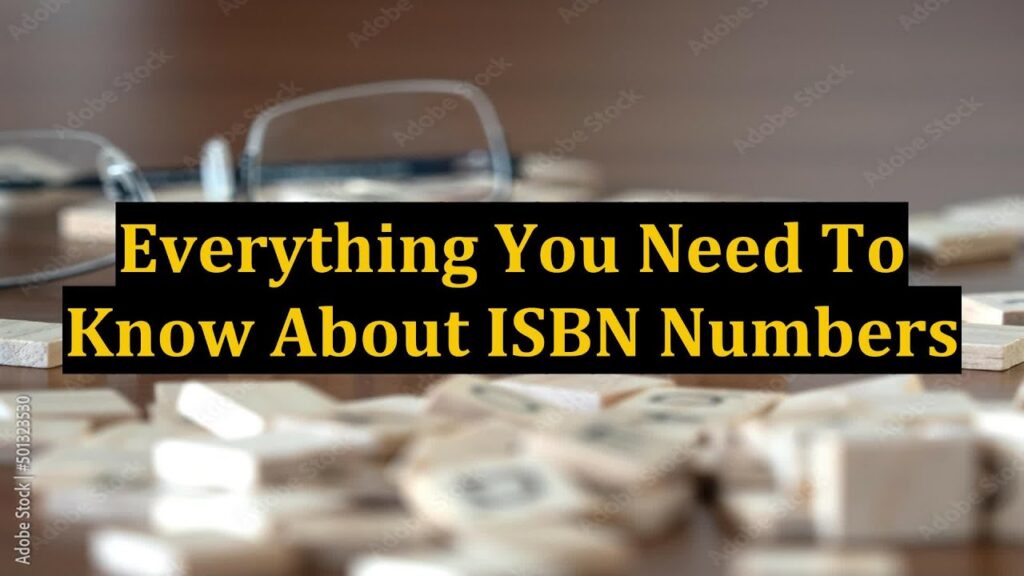In the digital age, the demand for eBooks has skyrocketed, and authors are taking advantage of self-publishing to reach global audiences. However, one essential component that can significantly impact the discoverability and success of an eBook is the ISBN number, or International Standard Book Number. This article delves into the reasons why every eBook should have an ISBN number and how it enhances visibility, credibility, and overall reach.
Why ISBNs are Essential for eBooks
1. Enhanced Discoverability in Retail and Libraries
- Retailers Rely on ISBNs: Major online retailers, such as Amazon, Barnes & Noble, and Apple Books, require ISBNs for eBooks to streamline inventory and search. Books with an ISBN are far easier to find by title, author, or genre.
- Library Databases: Libraries worldwide rely on ISBNs for cataloging. Without an ISBN, an eBook may not be added to library databases, limiting its availability to a broader audience and reducing its long-term accessibility.
2. Credibility and Professionalism
- Signal of Quality: An ISBN signals that the book is a legitimate, professional publication. Readers, especially those buying books online, may feel more confident purchasing books that carry ISBNs.
- Publisher Identification: ISBNs also contain information about the publisher, providing additional assurance to readers and retailers. This helps establish the author’s brand, especially if the eBook is part of a larger series.
3. Simplifies Distribution
- Global Reach: ISBNs facilitate the distribution of eBooks across multiple platforms and countries. An eBook with an ISBN can be listed in various international databases, making it accessible to audiences beyond local markets.
- Flexible Format Identification: ISBNs distinguish between various formats (e.g., paperback, hardcover, digital). Each version of a book requires its own ISBN, allowing readers to locate their preferred format easily.
4. Effective Marketing and Sales Tracking
- Sales and Inventory Management: ISBNs are instrumental in tracking sales, especially when working with multiple retailers or distributors. This enables authors and publishers to gain insights into which formats and regions perform best.
- Metadata for Marketing: ISBNs also allow authors and publishers to add detailed metadata (genre, language, age group, keywords, etc.) to help readers discover eBooks based on their interests, making ISBNs an invaluable tool for targeted marketing.
5. ISBNs Aid in Copyright Protection
- Ownership and Rights: An ISBN doesn’t equate to copyright, but having one helps establish an official record of the book’s publication date, format, and ownership. This can be crucial in case of copyright disputes.
- Enhanced Control for Authors: ISBNs allow self-publishing authors to manage distribution rights more effectively. For instance, an author can assign different ISBNs to various versions (international, regional, language-specific) of their eBook.
6. Long-Term Accessibility and Legacy
- Preservation in Archives: Libraries and digital repositories are more likely to archive books with ISBNs, preserving them for future generations. This helps establish a lasting digital footprint for the eBook.
- Academic and Institutional Use: ISBNs increase the chances of an eBook being referenced in academic and institutional contexts. Students, researchers, and libraries often rely on ISBNs for citation and reliable sourcing.
How to Obtain an ISBN for Your eBook
Obtaining an ISBN is relatively straightforward. Here are the steps:
- Contact Your Country’s ISBN Agency: ISBNs are issued by designated agencies in each country. In the U.S., for instance, Bowker is the official ISBN agency.
- Apply Online: Many ISBN agencies have simplified the process, allowing authors to apply for an ISBN online. Some self-publishing platforms also provide ISBNs, but it’s important to understand the rights and terms associated with those.
- Assign ISBNs by Format: As each format requires a separate ISBN, ensure you assign unique ISBNs for different eBook versions (ePub, PDF, etc.) as well as print versions.
- Register ISBN with Metadata: Once you have the ISBN, fill in the book’s metadata, including the title, author name, genre, and keywords. This helps retailers and libraries accurately categorize and promote the eBook.
Conclusion
An ISBN Number is much more than just a number; it’s a valuable tool that enhances the discoverability, credibility, and accessibility of an eBook. For authors and publishers, ISBNs are essential for reaching broader audiences and managing the distribution process effectively. As the digital landscape continues to expand, having an ISBN becomes even more critical for authors who want to ensure that their eBooks are not only published but also easily found, accessed, and preserved for years to come.







